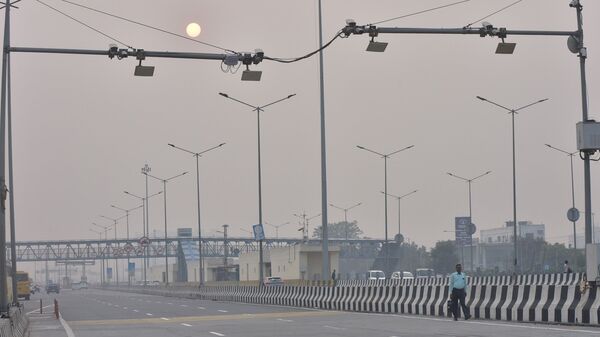Bengaluru to Delhi: AI increasingly penetrating Indian traffic management system


Artificial Intelligence (AI) is rapidly transforming the world around us. A key implementation of AI is being seen in smart city solutions, which include parking management and traffic management systems. Having one of the most complex traffic situations in the world, Indian cities too are increasingly adopting AI-powered traffic management systems to make the flow of people and vehicles smoother and safer.
Delhi seems to become the latest city to adopt an AI-driven traffic management system as the Delhi government is mulling the plan to install AI-powered cameras across the national capital to detect traffic violations by motorists. Other states like Uttar Pradesh, Kerala and Karnataka have already adopted such technology for efficient traffic management systems and surveillance.
Also check these Vehicles
The Kerala government has revealed its plan to bring important roads in the state under the scanner of AI-based cameras to reduce road accidents by 50 per cent by the end of 2024. Bengaluru Traffic Police has introduced an AI-enabled traffic management system, which uses AI-enabled cameras to detect traffic violations and issue challans through SMS to the violators' mobile phones. A similar traffic rule violation detection system has been enforced in Ghaziabad as well. Clearly, there is a major transformation going on in the Indian traffic management system.
How AI-based traffic management system works
Traffic management systems across India were traditionally monitored manually and controlled by the government's law enforcement officials. With the rise of AI and machine learning, traffic management systems across India are increasingly becoming automated. AI helps in analyzing huge volumes of real-time traffic data with the help of various cameras and Internet-of-Things (IoT) devices.
Christened as the Integrated Traffic Enforcement Management System (ITMS), this system works with the help of several AI-powered cameras installed across the city. This system ensures better law enforcement through AI. With the ITMS, traffic rule violations like overspeeding violations, riding without a helmet, triple riding, driving without a seat belt, driving while on phone calls, uncovered good carriage, overloading of commercial vehicles, driving in the wrong lane, buses not moving in designated lanes, private vehicles parked on roads can be detected. The violators can be prosecuted accordingly. The ITMS can also detect vehicles that are plying without a valid pollution under control certificate (PUCC) or have been deregistered.
While the detection of these violations manually needs a large number of law enforcement officials posted in different parts of the city, it doesn't promise an error-free detection and prosecution method. On the other hand, the AI-powered IRMS can do this work much more efficiently and smoothly, where the chance of error would be minimal as the system will continuously learn using its deep machine-learning capability.
AI technologies offer traffic planners access to tools that can be used to analyze, detect, and predict a wider range of patterns in traffic. This helps them in the establishment of a traffic network where everything works smoothly like clockwork. In a nutshell, the implementation of ITMS can make the urban traffic management system dynamically efficient.
What commuters should know about ITMS
According to statistics, India witnesses about 450,000 road accidents every year across the country. These road accidents result in more than 150,000 deaths, while an even higher number of people face critical injuries. The ITMS are being deployed in various cities to reduce road accidents and the resultant fatalities.
While many of these accidents happen due to reasons like bad road conditions, poor vehicle safety etc, majority of the road accidents are often caused by human errors. Drunk driving, jumping traffic signals, riding without a helmet, Driving without wearing a seatbelt, wrong lane driving, overspeeding, not following the traffic signs, and overloading often play crucial roles in majority of the road accidents.
With the ITMS enforced, these cts of traffic rule violations can be detected easily and the violators can be prosecuted as well. Hence, commuters should know and obey the traffic rules to avoid being detected by the ITMS red-handed and being prosecuted.








 1769.0 cc
1769.0 cc 20.0 kmpl
20.0 kmpl


















